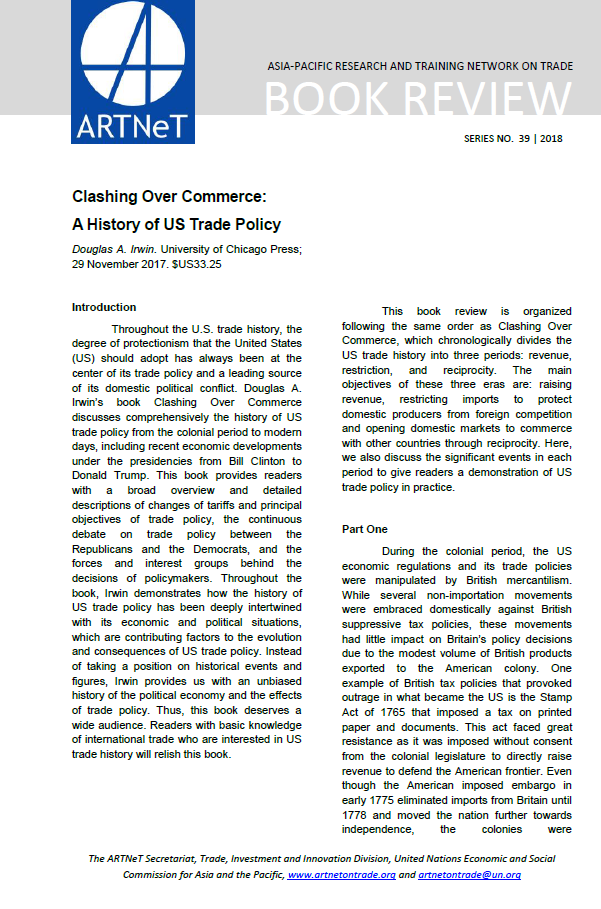Clashing Over Commerce: A History of US Trade Policy

Throughout the U.S. trade history, the degree of protectionism that the United States (US) should adopt has always been at the center of its trade policy and a leading source of its domestic political conflict. Douglas A. Irwin’s book Clashing Over Commerce discusses comprehensively the history of US trade policy from the colonial period to modern days, including recent economic developments under the presidencies from Bill Clinton to Donald Trump. This book provides readers with a broad overview and detailed descriptions of changes of tariffs and principal objectives of trade policy, the continuous debate on trade policy between the Republicans and the Democrats, and the forces and interest groups behind the decisions of policymakers. Throughout the book, Irwin demonstrates how the history of US trade policy has been deeply intertwined with its economic and political situations, which are contributing factors to the evolution and consequences of US trade policy. Instead of taking a position on historical events and figures, Irwin provides us with an unbiased history of the political economy and the effects of trade policy. Thus, this book deserves a wide audience. Readers with basic knowledge of international trade who are interested in US trade history will relish this book.
This book review is organized following the same order as Clashing Over Commerce, which chronologically divides the US trade history into three periods: revenue, restriction, and reciprocity. The main objectives of these three eras are: raising revenue, restricting imports to protect domestic producers from foreign competition and opening domestic markets to commerce with other countries through reciprocity. Here, we also discuss the significant events in each period to give readers a demonstration of US trade policy in practice.
